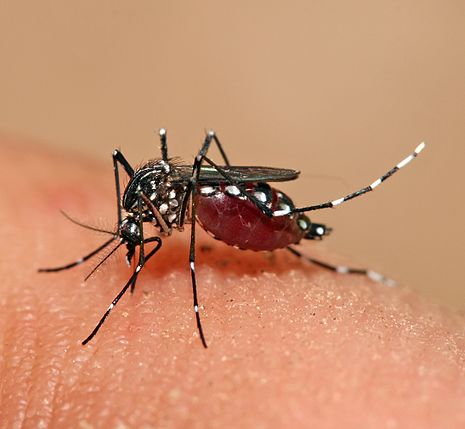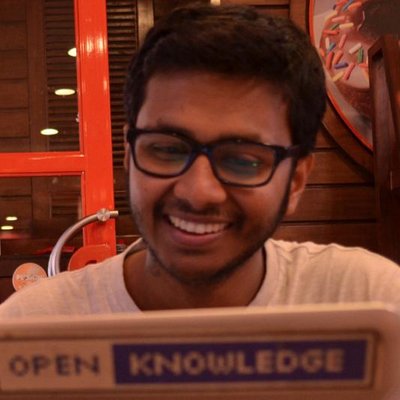Pakistan
See the following -
5 Apps Working to Improve Women’s Safety Across the World
 Girls in Dharavi Diary Slum are learning how to code apps, changing the lives of people living in Mumbai’s biggest slum. The project aims to empower and educate girls from the Dharavi slum, giving them vital skills to thrive in a digital world. In a country where education for girls is considered secondary to maintaining the family home, this programme is revolutionary in changing the way India is looking at education for girls...
Girls in Dharavi Diary Slum are learning how to code apps, changing the lives of people living in Mumbai’s biggest slum. The project aims to empower and educate girls from the Dharavi slum, giving them vital skills to thrive in a digital world. In a country where education for girls is considered secondary to maintaining the family home, this programme is revolutionary in changing the way India is looking at education for girls...
- Login to post comments
An Automated Routine Childhood Immunization Approach Using OpenEHR
This project studies a working but manual immunization system in place in Pakistan, subject to concerns such as poor record-keeping, reaching targeted children and unavailability of latest census. We propose an openEHR-based solution [...]. Read More »
- Login to post comments
Appeals Court Skeptical Of Obama Secrecy Around Drone Killings
A U.S. appeals court responded skeptically on Thursday to Obama administration assertions the government can withhold documents about a program that uses aerial drones for targeted killings overseas. Read More »
- Login to post comments
Can We Engage Private Pharmacies To Help Control Drug-Resistant Tuberculosis?
Antibiotic resistance and infectious diseases have long been high on my list of things to worry about, with multi-drug-resistant tuberculosis vying for top honors. In 2015, 10.4 million people became ill with tuberculosis, and 1.8 million died, making TB one of the top causes of death globally. Six countries account for 60% of the cases: China, India, Indonesia, Nigeria, Pakistan and South Africa. As I noted in a previous post, India is critically important to control of drug resistance as well as tuberculosis, as it has the highest TB burden, with 2.2 million infections annually, as well as the largest antibiotic consumption...
- Login to post comments
Citizen Cartographers Fill The Gaps In Maps
...[M]aps are a vital resource, especially when deciding what infrastructure to build or in the event of a humanitarian crisis. Now teams of mappers are working to chart some of the most obscure corners of the developing world using OpenStreetMap (OSM), the citizen-mapping tool that today has over 1 million registered users.
- Login to post comments
Medicine and Public Health in Nuclear War Diplomacy and Response
 The world is not prepared to deal with the devastating effects of a thermonuclear attack, according to Cham Dallas, professor of public health and director of the Institute for Disaster Management at the University of Georgia. Dallas said that the development of a hydrogen bomb by North Korea is a transformative event, especially from the point of view of the medical and public health response to a thermonuclear detonation...
The world is not prepared to deal with the devastating effects of a thermonuclear attack, according to Cham Dallas, professor of public health and director of the Institute for Disaster Management at the University of Georgia. Dallas said that the development of a hydrogen bomb by North Korea is a transformative event, especially from the point of view of the medical and public health response to a thermonuclear detonation...
- Login to post comments
Mobile Phone Data Helps Predict Dengue Advance
 Using mobile phone data to track people’s movements can help predict how dengue fever spreads, epidemiologists have shown in Pakistan. The disease only appeared in northeast Pakistan in recent years, after being “largely confined” to the southern city of Karachi, the study says. As the transmission of the virus that causes dengue fever is partly driven by human travel, analysing how people move across the country allows researchers to predict when and where epidemics may break out.
Using mobile phone data to track people’s movements can help predict how dengue fever spreads, epidemiologists have shown in Pakistan. The disease only appeared in northeast Pakistan in recent years, after being “largely confined” to the southern city of Karachi, the study says. As the transmission of the virus that causes dengue fever is partly driven by human travel, analysing how people move across the country allows researchers to predict when and where epidemics may break out.
- Login to post comments
Open Source Powers The United Nations' Sustainability Goals
 Although the United Nations (UN) has previously spoken well of open source development, several recent events show the UN taking definitive actions to introduce the entire world to the open source way. In July, the UN’s Economic and Social Council (ECOSOC) adopted a draft resolution introduced by the representative of Pakistan titled Open source technologies for sustainable development. ECOSOC noted the availability of open source technologies that can contribute to the Sustainable Development Goals (SDGs). The council invited the Secretary-General to “develop specific proposals on ways to better leverage open source technologies for sustainable development based on inputs from interested Member States and other stakeholders.”
Although the United Nations (UN) has previously spoken well of open source development, several recent events show the UN taking definitive actions to introduce the entire world to the open source way. In July, the UN’s Economic and Social Council (ECOSOC) adopted a draft resolution introduced by the representative of Pakistan titled Open source technologies for sustainable development. ECOSOC noted the availability of open source technologies that can contribute to the Sustainable Development Goals (SDGs). The council invited the Secretary-General to “develop specific proposals on ways to better leverage open source technologies for sustainable development based on inputs from interested Member States and other stakeholders.”
- Login to post comments
Pakistan And 3D Printing: A Tale Of Success
...The moment the patents expired 3D printing began its steady boom. It was only a matter of time before the tech found its way to Pakistan...
- Login to post comments
Participants at Arab Health 2016 Show the Way for Health IT
 Arab Health is the largest healthcare exhibition and medical congress in the Middle East, and arguably the second largest one in the world. It took place from January 25 to 28 at the Dubai International Convention & Exhibition Centre in Dubai, United Arab Emirates (UAE). This conference attracted about 150,000 visitors from a region half a billion people call home: this covers Pakistan, Afghanistan, Iran, Iraq, Saudi Arabia, Turkey, Egypt, Morocco and a lot of other countries. Why all these people attend Arab Health? Let me give you a couple of examples... Read More »
Arab Health is the largest healthcare exhibition and medical congress in the Middle East, and arguably the second largest one in the world. It took place from January 25 to 28 at the Dubai International Convention & Exhibition Centre in Dubai, United Arab Emirates (UAE). This conference attracted about 150,000 visitors from a region half a billion people call home: this covers Pakistan, Afghanistan, Iran, Iraq, Saudi Arabia, Turkey, Egypt, Morocco and a lot of other countries. Why all these people attend Arab Health? Let me give you a couple of examples... Read More »
- Login to post comments
Smartphone Monitoring System Helps Pakistan Control Dengue Outbreaks
An Android-based monitoring system in Pakistan is helping to control dengue outbreaks by tracking and tagging confirmed cases and the mosquito larvae that carry the disease, according to an Oct. 30 article in Technology Review. Read More »
- Login to post comments
The Largest Wikipedia Gathering in South Asia Kicks Off
 Wiki Conference India 2016 (WCI), the largest gathering of contributors to Wikipedia and its sister projects in South Asia, will be held during August 5-7 this year in Chandigarh, India. The first iteration of this event was five years ago in 2011. The event is focused around South Asian language Wikipedias and Wikimedia projects. Hundreds of participants, including over 100 scholarship holders from India, Pakistan, Nepal, Bangladesh and Sri Lanka, will participate in this three-day event...
Wiki Conference India 2016 (WCI), the largest gathering of contributors to Wikipedia and its sister projects in South Asia, will be held during August 5-7 this year in Chandigarh, India. The first iteration of this event was five years ago in 2011. The event is focused around South Asian language Wikipedias and Wikimedia projects. Hundreds of participants, including over 100 scholarship holders from India, Pakistan, Nepal, Bangladesh and Sri Lanka, will participate in this three-day event...
- Login to post comments
There’s a Disaster Much Worse than Texas. But No One Talks about It
A quick quiz. No Googling, no conferring, but off the top of your head: what is currently the world’s worst humanitarian disaster? If you nominated storm Harvey and the flooding of Houston, Texas, then don’t be too hard on yourself. Media coverage of that disaster has been intense, and the pictures dramatic. You’d be forgiven for thinking that this supposedly once-in-a-thousand-years calamity – now happening with alarming frequency, thanks to climate change – was the most devastating event on the planet...
- Login to post comments
Unicef Is Funding Blockchain and Health Tech to Solve the World’s Biggest Problems
The United Nations has announced the first five startups to receive investment through its its $9 million (£7.2m) innovation fund. Unicef, the UN's children's charity, will be giving seed funding to companies working to create affordable mobile connectivity, blockchain in childhood development, data collection in maternal care, and technology to help improve literacy skills. The funding comes as part of Unicef's Innovation Fund – launched in February – and will see the organisation put up to $100,000 into each of the five firms...
- Login to post comments
Will Hackers Find Bioweapon Secrets In The Cloud?
The collision of big data and decoded genetic information is creating a wealth of opportunities for biologists, engineers and public health researchers. However, there is also the potential that advances in computing and genetics are providing potentially catastrophic opportunities for malefactors to hack into research computers to find information that could be adapted to create biological weapons.
- Login to post comments